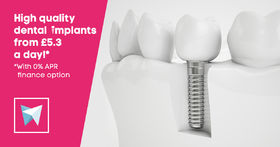If you have a sensitive tooth, you can get either a mild twinge or feel discomfort for several hours. This feeling can be arise when cold or hot (or sweet, fatty) food or drink come in contact with the teeth.

Many people suffer from sensitive teeth, and it can start at any time. The most vulnerable age group is people aged between 20 and 40, and women are more likely to be affected than man. These hardly tolerable nuisances could be caused by many reasons.
How your tooth operates
Outside there is a layer of enamel: it is white, very durable and mineralised. This is the part of the tooth we can see. Underneath the enamel is the dentin, a yellowish, very resistant bone tissue. Both of them have the function of protecting the softer parts underneath from external aggression, extreme temperature and mechanical stress.
When the layers of enamel and dentin is thin, the tooth can become sensitive, as the stress can reach the dentine crossed by canals called microscopic tubules, connected to the vital and sensitive pulp, where there are nerve endings that cause pain when irritated.

The possible causes of sensitivity
Our teeth can become sensitive for a lot of reasons. The protective layer of enamel and dentin can be eroded or the gums may have receded, and if the dentine or the root is exposed, the tooth becomes sensitive.
Here are some causes of sensitivity:
Brushing aggressively and brushing from side to side.
It can cause enamel to be worn away - particularly where the teeth meet the gums. The freshly exposed dentine may become sensitive.
Dental erosion
When the acidic food and drinks attack the tooth enamel, enamel could become worn away, and the dentine underneath exposed may lead to sensitivity.
Gingival recession
The gums may naturally recede, or it could happened as a result of brushing too aggressive and technically incorrect way, or caused by gum inflammation or by a built-up of plaque or tartar
At this case the roots of the teeth will become exposed and can be more sensitive. Root surfaces do not have an enamel layer to protect them.
Tooth grinding
With this habit the enamel of the teeth become worn away easily, making the teeth sensitive.
A cracked tooth or filling
A crack can run from the biting surface of a tooth down towards the root. Extreme temperatures, especially cold, may cause discomfort
Clinical tooth whitening
After the treatment your teeth may be sensitive, but this can be alleviated with the use of toothpaste designed for sensitive teeth. You should also use mouthwash, as this will help with quick recovery.


 Call
Call Send
Send Find us
Find us Connect
Connect